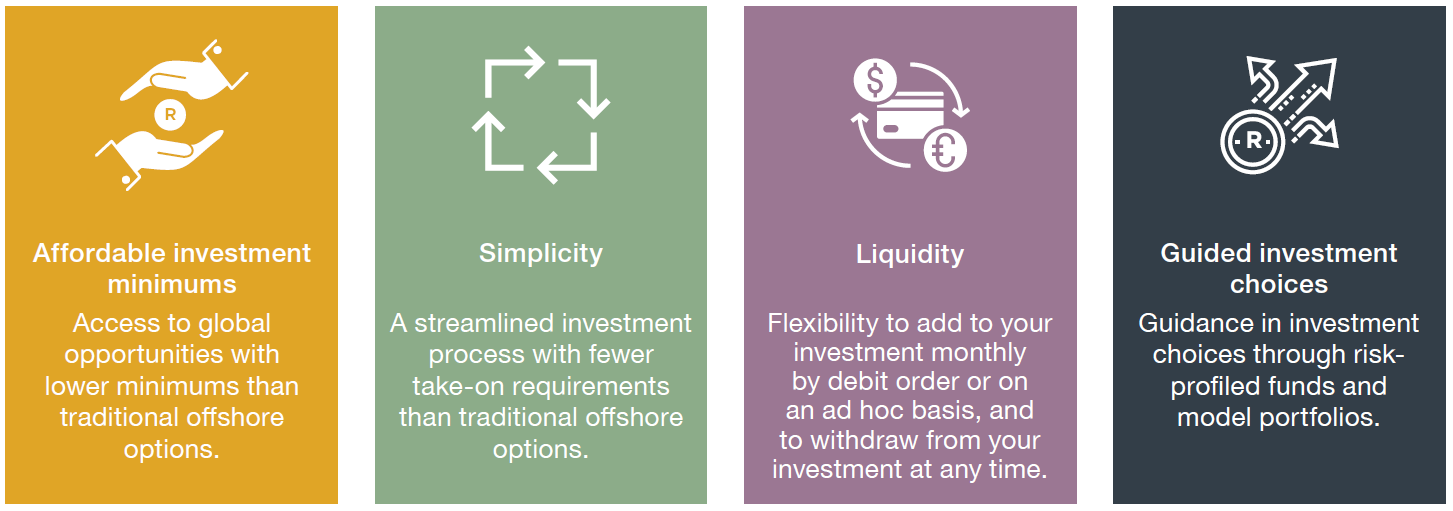Exploring Exactly How Spending Off Shore Functions: A Comprehensive Guide
Investing offshore presents a complicated landscape of chances and difficulties. Recognizing the numerous kinds of overseas accounts is vital for anybody considering this path. The benefits, including improved personal privacy and property security, are substantial. However, legal and tax obligation effects call for careful attention. As capitalists seek to optimize their profiles, the steps to develop a viable overseas financial investment approach end up being necessary. What are the vital elements that one must browse to prosper in this venture?
Understanding Offshore Accounts and Their Kinds
What drives individuals and organizations to consider offshore accounts? The appeal of financial personal privacy, asset security, and possible tax obligation benefits commonly attracts the focus of those looking for to handle their riches a lot more purposefully. Offshore accounts, usually established in international territories, come in numerous types. Personal accounts accommodate specific needs, providing services like cost savings, financial investment, or retirement planning. Business accounts, on the other hand, offer companies looking to promote worldwide purchases, boost privacy, or maximize tax obligation commitments. Count on accounts supply an extra layer of defense, allowing individuals to secure their properties for future beneficiaries. Each kind of overseas account presents distinct functions, frequently influenced by the regulative atmosphere of the host nation. Understanding these differences is important for people and companies, as the selection of account kind can significantly impact their economic strategies and conformity with global regulations.
Advantages of Offshore Investing
While numerous financiers seek chances to diversify their portfolios, offshore investing presents unique advantages that can enhance financial development and safety. One significant advantage is the capacity for asset security. Offshore accounts can protect investments from political instability or financial slumps in the capitalist's home nation. In addition, overseas investments commonly supply access to international markets, allowing capitalists to tap into arising economic climates and fields that may not be available domestically.Another substantial advantage is tax efficiency. Many overseas jurisdictions supply beneficial tax programs, which can reduce tax liabilities and boost overall returns. Overseas investing can boost privacy, as certain territories impose strict confidentiality laws.Lastly, offshore accounts can promote wealth administration techniques by supplying a larger range of investment options, including alternate properties such as actual estate and products. Jointly, these benefits make offshore investing an attractive option for those looking to enhance their economic profiles.

Lawful and Governing Factors to consider
Steering through the regulative and lawful landscape of overseas investing needs careful focus and understanding. Investing Off Shore. Financiers should navigate a complicated internet of laws that vary substantially from one jurisdiction to another. Compliance with regional laws is crucial; failing to do so can cause serious charges, including penalties and imprisonment. Furthermore, recognizing the legal frameworks governing foreign financial investments is crucial for assuring the defense of assets and preserving functional legitimacy.Key considerations consist of comprehending the governing requirements for establishing overseas entities, such as trusts or companies, and sticking to anti-money laundering (AML) and know-your-customer (KYC) regulations. Financiers should also understand reporting obligations in their home country, as lots of countries need disclosure of overseas holdings. Involving with lawful professionals experienced in overseas investment can give vital guidance, helping financiers to reduce dangers and safe compliance with suitable regulations and laws while optimizing their financial investment capacity

Tax Ramifications of Offshore Investments
Recognizing the governing and legal considerations of offshore investing click now naturally brings about an evaluation of the tax implications related to these financial investments. Offshore investments can use substantial tax obligation advantages, including decreased tax rates and the capacity for tax deferment. Nonetheless, financiers have to navigate complex tax laws in their home nations, as several territories call for taxpayers to report international earnings and assets.For U.S. residents, the Foreign Account Tax Compliance Act (FATCA) mandates the coverage of overseas accounts, while various other nations have comparable requirements. Failure to conform can lead to severe fines. Furthermore, certain overseas funds might go through special tax treatments, such as Passive Foreign Investment Firm (PFIC) regulations, complicating investment strategies.Investors need to take into consideration speaking with tax specialists to recognize effects particular to their situations and assurance compliance with both residential and global tax regulations, eventually making the most of the advantages of their offshore financial investments while lessening risks.
Actions to Get Going With Offshore Investing
Several financiers looking for to expand their portfolios transform to offshore investing as a viable choice. To begin, one should perform complete research on prospective overseas jurisdictions, taking into consideration variables such as governing atmosphere, taxes, and investment opportunities. Investing Off Shore. After selecting an ideal location, investors need to establish an offshore account, which commonly needs paperwork verifying identification and resource of funds.Next, financiers frequently engage with an overseas investment or a financial consultant company aware of regional regulations and market characteristics. This collaboration can help in crafting a customized financial investment strategy that lines up with private objectives and take the chance of tolerance.Once the method is in place, investors can proceed to select certain possessions or funds for financial investment, guaranteeing they review performance and runs the risk of frequently. Preserving compliance with both neighborhood and home country policies is necessary for successful offshore investing, requiring continuous persistance and potentially routine consultations with lawful professionals.

Often Asked Inquiries
Exactly how Do I Pick the Right Offshore Territory?
Selecting the ideal overseas territory entails assessing aspects such as regulative atmosphere, tax benefits, political security, and simplicity of operating. Investigating each option completely guarantees enlightened decisions that align with individual financial investment goals and risk resistance.
What Kinds of Possessions Can I Hold Offshore?

Exist Threats Connected With Offshore Investing?
The risks connected with offshore investing include legal complexities, regulative modifications, money changes, and prospective political instability. Financiers need to meticulously review these aspects to alleviate dangers and assurance compliance with international regulations and guidelines.
Exactly How Can I Access My Offshore Finances?
To accessibility overseas funds, individuals usually require to call their monetary institution, provide essential identification and documentation, and adhere to well-known procedures for fund transfers, making his response sure conformity with both international and neighborhood policies controling offshore investments.
What Prevail Misconceptions Concerning Offshore Accounts?
Common false impressions about overseas accounts consist of beliefs that they are exclusively for tax obligation evasion, lack of law, or obtainable to the well-off. In truth, they can be reputable economic devices for diverse individuals. In addition, overseas investments typically offer access to worldwide markets, permitting financiers to touch right into emerging economic climates and sectors that might not be readily available domestically.Another significant advantage is tax obligation performance. Overseas investing can improve personal privacy, as particular jurisdictions impose strict privacy laws.Lastly, offshore accounts can assist in wide range management techniques by giving a wider range of investment choices, consisting of alternate possessions such as actual estate and assets. Understanding the regulative and legal considerations of offshore investing normally leads to an evaluation of the over here tax obligation effects connected with these investments. Offshore investments can supply considerable tax advantages, consisting of reduced tax prices and the potential for tax obligation deferment. After selecting an ideal area, capitalists need to develop an overseas account, which generally needs paperwork verifying identity and resource of funds.Next, financiers commonly engage with a financial advisor or an overseas financial investment firm familiar with neighborhood legislations and market dynamics.
Comments on “How to Vet Advisors Before Investing Off Shore”